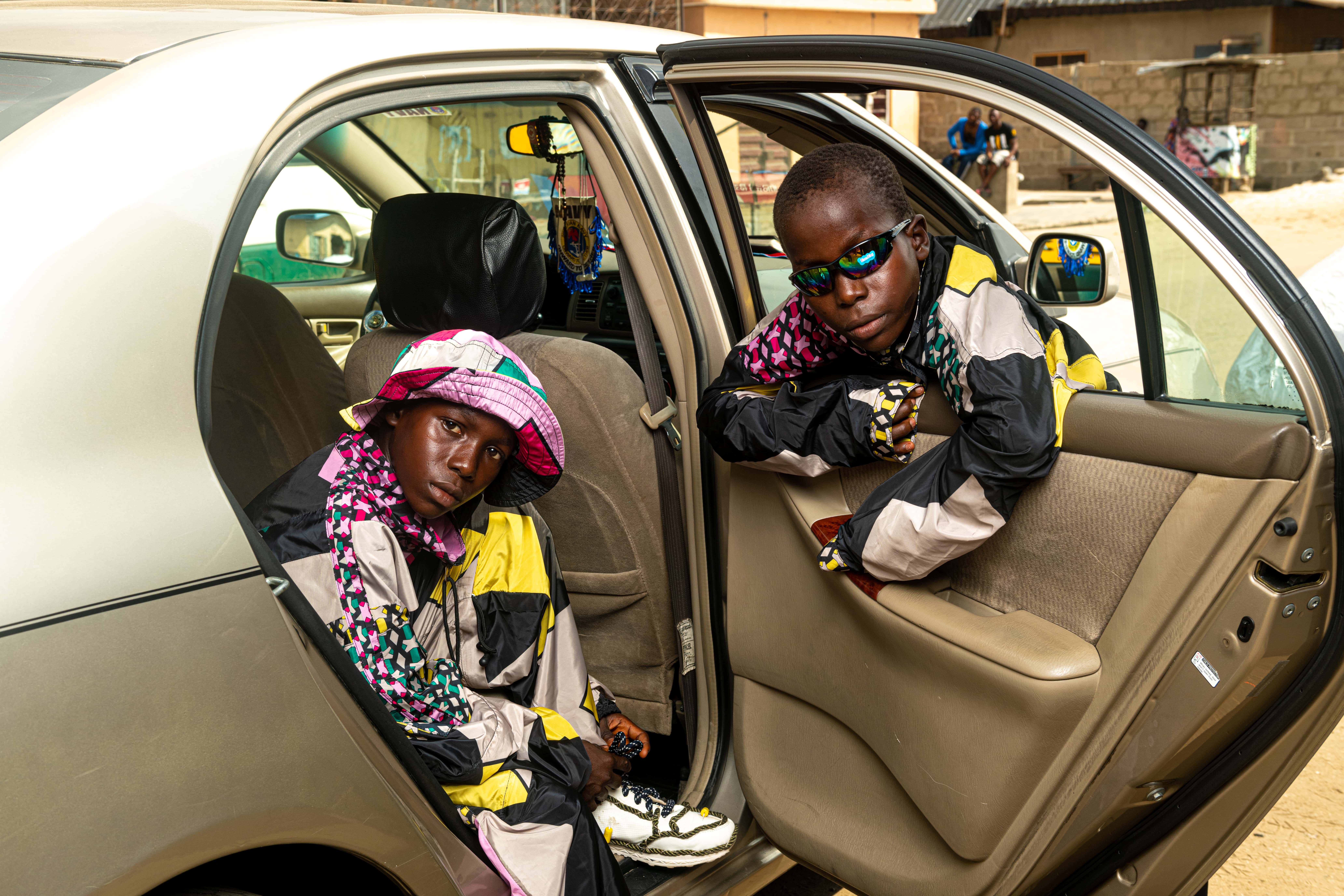In the grainy picture on his WhatsApp profile, award-winning Nigerian photographer and filmmaker Dafe Oboro is wearing a long-sleeved, black and white awning striped shirt three or four sizes larger than his slender, eleven-year-old frame. He’s sporting a grin coy enough to pass as a smirk, but his eyes are trained intensely at the camera. His pose is casual, and he’s holding a toy flip phone to his ear. It’s a picture I instantly related to when I called him to chat about “Lagos Still Moves.”
Like Oboro, I was born in early ‘90s Nigeria and had to wear clothes many sizes too large. The conventional wisdom my mum often repeated was that I would naturally grow into them, not minding the intense mockery I had to endure from friends whose sartorial choices were not inhibited by their parents. In fact, my mum bought every item of clothing I owned until the Christmas before I turned fifteen.
But every year before then, a week or so before Christmas, I would wake very early in the morning with a belly full of excitement, waiting to accompany her to the market for our customary Christmas shopping. My lips were usually parched from the mercilessly dry harmattan wind, just like the chalky skin between my fingers and on my knees and elbows, which didn’t matter much to me because nothing trumped getting a set of new clothes, shoes, a colorful plastic wristwatch, and a bad-ass pair of plastic wrap-around sunglasses—even if a little too big, flashy, and matchy-matchy. Back then, new clothes—whether made-to-measure or ready-made—were an indispensable part of what made Christmas special for both the young and the old.
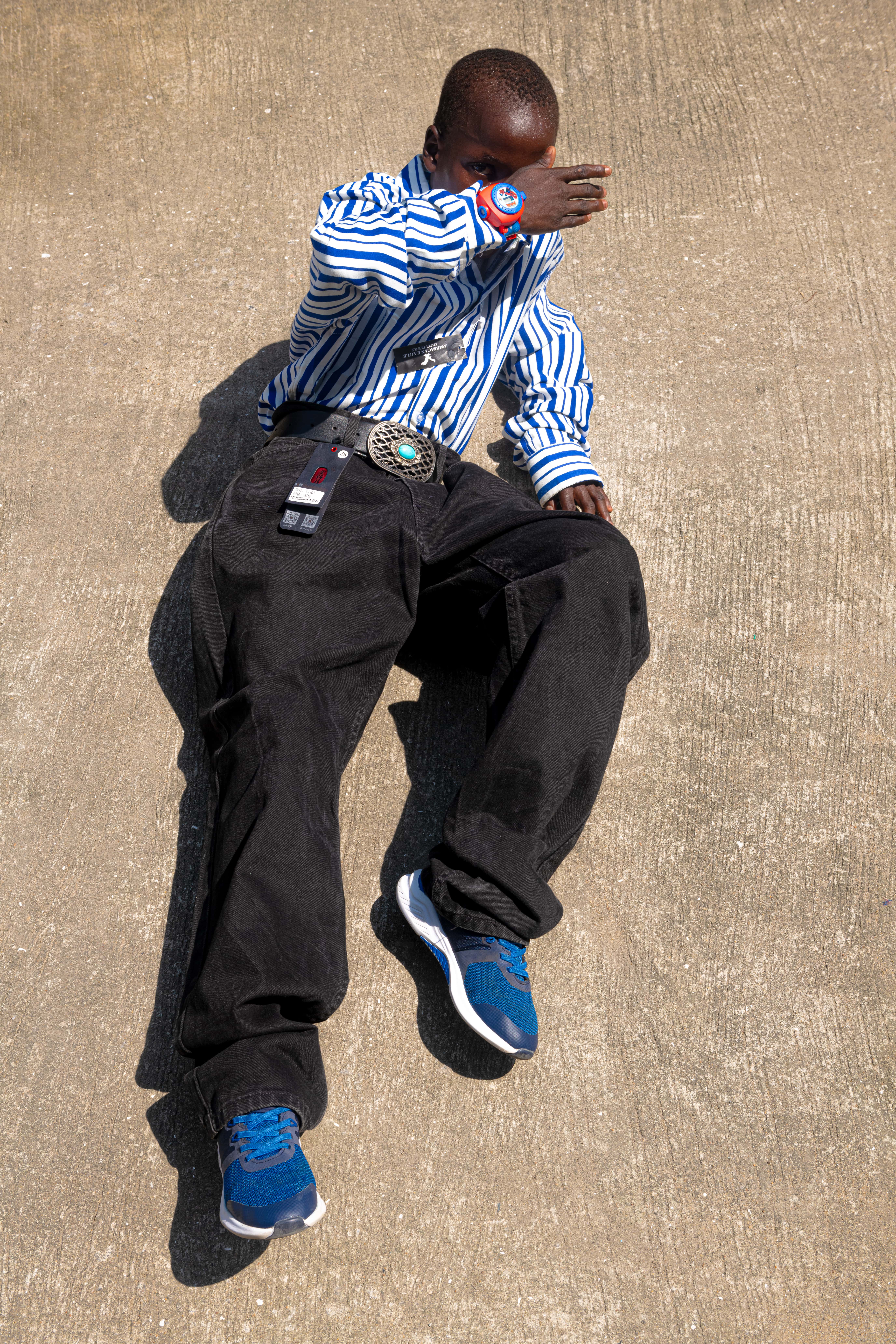
The outfits we wore then, and the dramatic postures we struck—posing for pictures in front of a polyester landscape backdrop at a random pop-up studio or lying on the ground of a parking lot—are reflected in this series. “I wanted some aspects of my contribution to be a depiction of what Christmas looked and felt like when I was growing up,” Oboro told me. “The oversized clothes and shoes my parents got me for Christmas, which I wasn’t fond of back then. Yet, the more I think about it, the more it grows on me, which makes me wonder: Could the idea of buying only clothes we can grow into hold the solutions for most of fashion’s excesses in a post-COVID-19 world?”
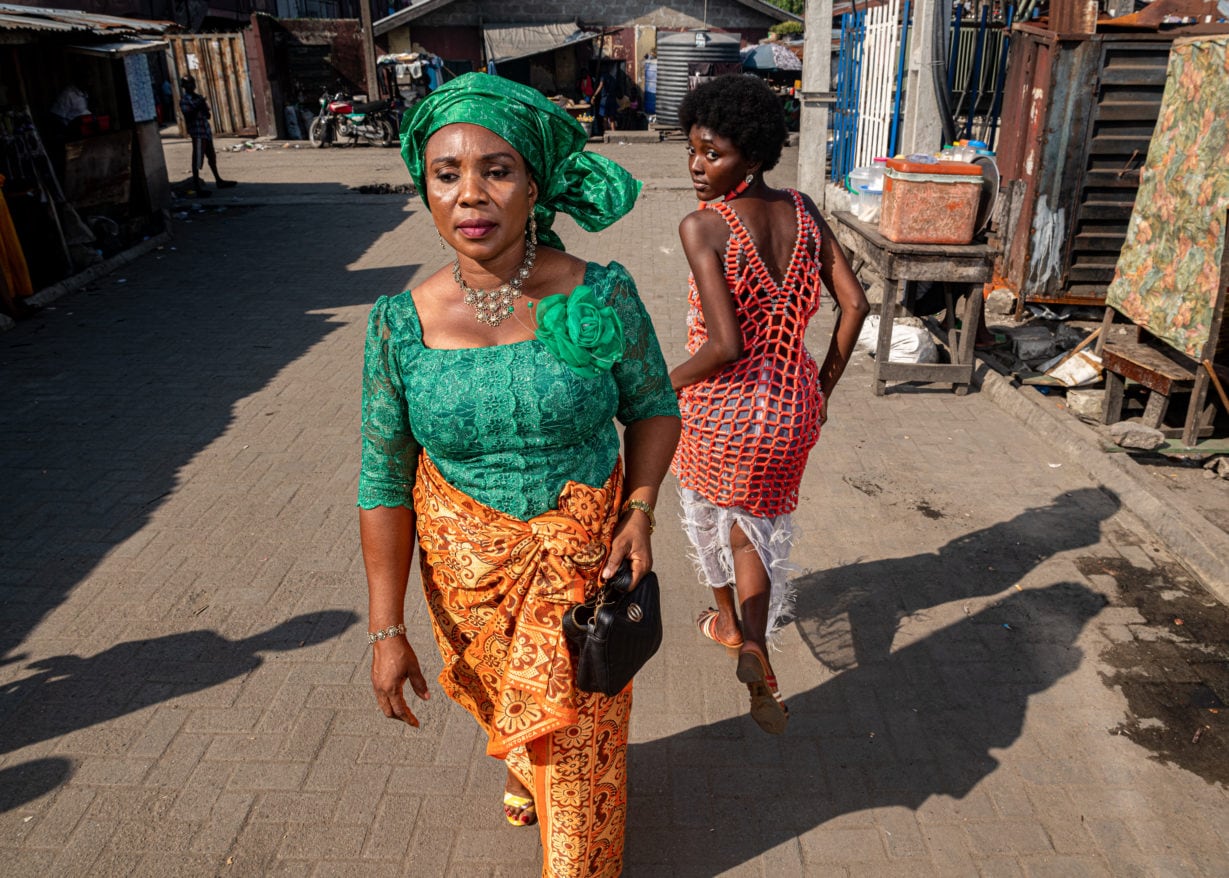
I first encountered Oboro’s work in the summer of 2017. At the time, like him, I called Lagos, Nigeria, home, and was running a queer-focused fashion publication—which I’d started from the ground up—while balancing the rigor of the Nigerian Law School. I don’t recall the details of what I was wearing or what else I was doing that unremarkable day when I stumbled on his short film Boy, You’re Beautiful on Instagram. Yet I remember the flush of familiarity that ran through me as I watched everyday Lagosians—young men like me in stature and skin tone—reveal, one after the other, what made them beautiful. That day I laid on the paper-thin, student-sized Mouka Foam mattress in my room, thinking to myself, “This is an artist that is unafraid to tell candid stories about the ordinary people and places he knows.”
Since then, Oboro has shot and directed a fashion film in collaboration with Ruth Ossai, another venerated new-age Nigerian photographer, for Miu Miu and Garage magazine, as well as worked with Nike, and was most recently a co-director and producer on the Lagos leg of Beyonce’s critically acclaimed film Black is King. Even so, his work is still raw, with the same guileless simplicity that does not seek to idealize or conceal or transfigure life in Nigeria, but to reveal it in its purest form.
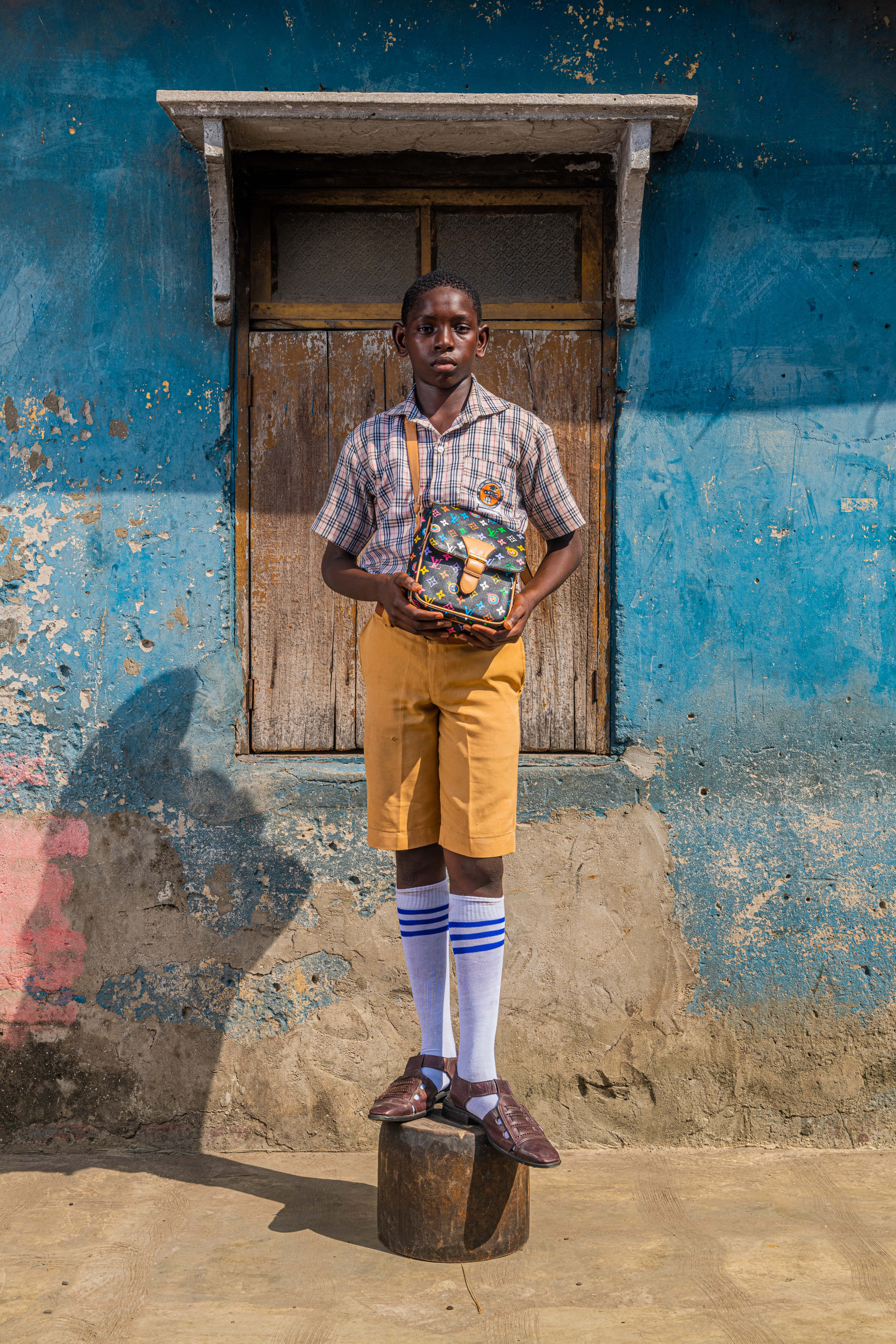
In this schoolboy shot, Oboro casts his lens on Burberry’s iconic Nova check print to draw a parallel between the fashion brand’s signature patterns and those used by schools in Nigeria. Also in focus is the taboo affair that exists between everyday Nigerians and the high-end Western designer brands they love, whose prohibitively exorbitant prices they cannot afford but, somehow, circumvent. There is the changing of guard in the way older and younger generations of Nigerian women approach made-to-measure fashion, as seen in the picture of Doris and Mide. The photo of Jay and his mother, Josephine, represents the changing landscape of masculinity in Nigeria, which is empowering comedians like Jay to embody familiar, archetypal Nigerian women from the eras before mobile phones became ubiquitous, without the familial animosity that often comes with that.
“I always say this—put me in London, New York, Accra, or Enugu, and what will come out of the work I do in these cities would solely be based on my time spent and experienced there,” Oboro says. But Lagos, the city of his birth, continues to play an outsized role in his work. “Lagos still moves, the noise is no different,” he explains. “Nothing has changed.”
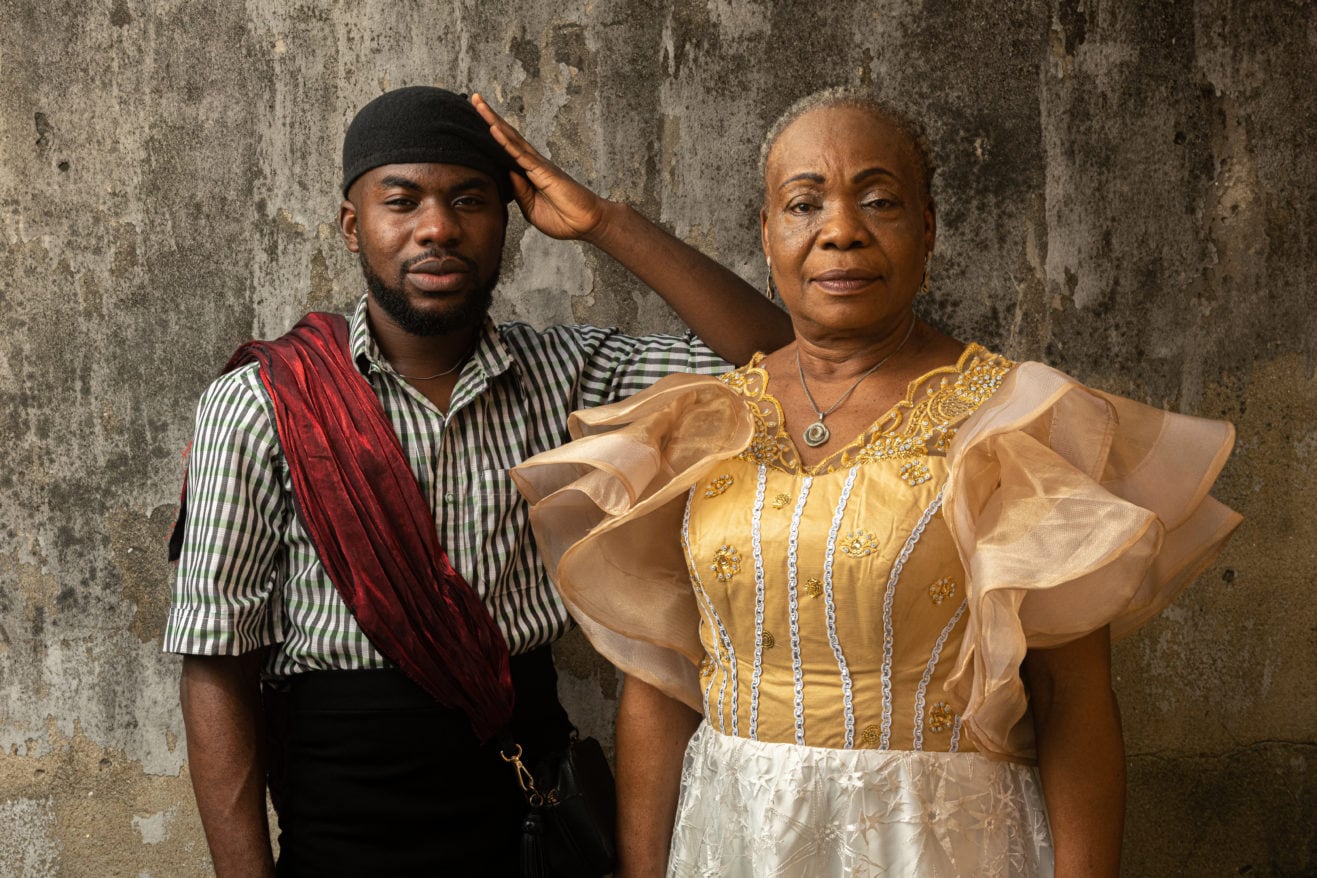
Image credits:
Photography: Dafe Oboro (@dafeoboro) | Lighting & Photography Assistant: Chuku Marshall (@mar__shall) | Production Company: Dafe Films (@dafefilms) | Production Assistants: Emeka Ezem (@emekaezem), Smart Song (@smartsongthevoice) | Fashion Assistant: Nezodo @nezodo
In order of appearance (starting with cover): Paul Onuoha (l) and Peter Onuoha (r) | Paul Onuoha | | Doris Emmanuel (l) and Mide Ikuomola (r) Yahaya Abdul | Jay (Joseph Onaolapo) (@jay_onair) and his Mother (Josephine Nkpang Onaolapo)
Featured Designers: Fruché (@fruche.official), Maxivive (@maxivive)
All other clothing and accessories belong to the talents.
